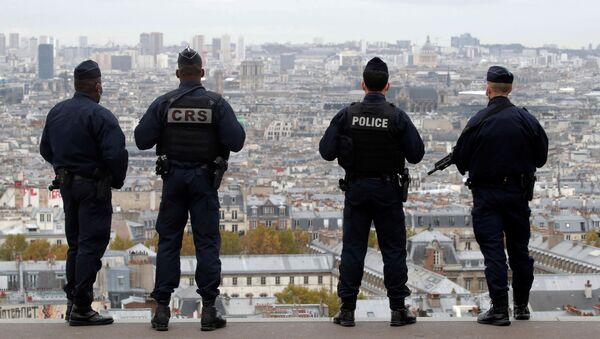Part of France’s new security bill would make it a criminal offense – under threat of punishment with one year in prison and a €45,000 fine – to spread images that harm “the physical or mental integrity” of law enforcement officers.
Stanislas Gaudon, who heads the police union 'Alliance', said on Friday that existing cyberbullying legislation does not currently provide effective protection for the police.
“The problem with those laws is that they can only be applied when the video is already online, but it’s too late, the damage is already done", he said.
Gaudon said the new law should also make it “compulsory to blur police officers’ faces” in any videos distributed.
Article 24 of the law, which was first proposed La République En Marche (LREM) MP Jean-Michel Fauvergue, following lobbying pressure from Alliance.
Lawmakers supporting the bill stress that it is only intended to be used in response to “malicious” actions.
“The purpose is to forbid any calls for violence or reprisals against officers and their families in videos broadcast over social media” said LREM MP Alice Thourot while speaking to France Inter radio.
Critics of the legislation claim that it could be used to repress certain liberties. On November 8, around 30 members of France’s Society of Journalists issued an open letter denouncing the bill as a “threat to the freedom to report”.
Some 800 filmmakers and photographers sent their own letter, claiming that the proposed bill is equivalent to “censorship”. They cited that a prominent documentary on police violence, 'Un pays qui se tient sage' (A Wise Country) filmed amid the 2018-19 Yellow Vest demonstrations, would have been restricted from the airwaves.
Amnesty International has also said the French government would be in violation of the UN’s 1966 International Covenant on Civil and Political Rights, protecting freedom of expression, if the law were to pass.
“The bill is not precise enough,” said Cécile Coudriou, head of Amnesty France. “The notion of ‘malicious intentions’ is too broad. It doesn’t conform to the standards of international law".
Those who oppose the law highlight examples where police brutality being broadcast through social media has aided in media and legal investigations into police violence.
On 5 January, Cédric Chouviat, a 42-year-old delivery driver in Paris died from a heart attack after being place in a chokehold by police. The event was seen in at least thirteen different videos from the victim, bystanders, and one of the officers involved.
Another example of social media footage bringing police violence to light is the filmed beating of Yellow Vest demonstrators by law enforcement in a Burger King in Paris in December 2018.


